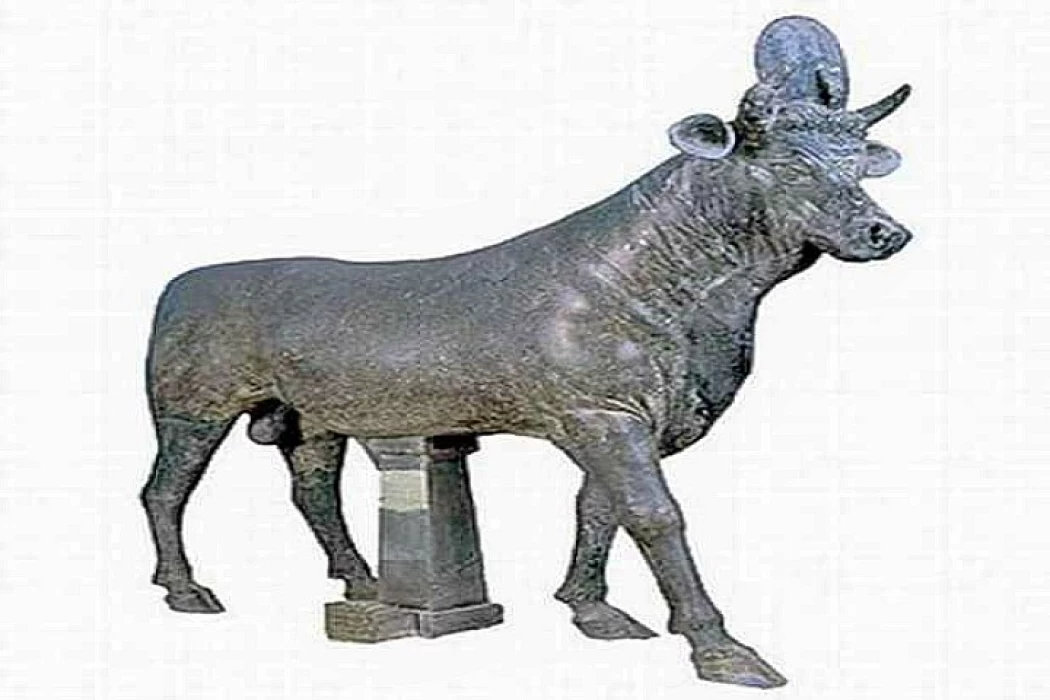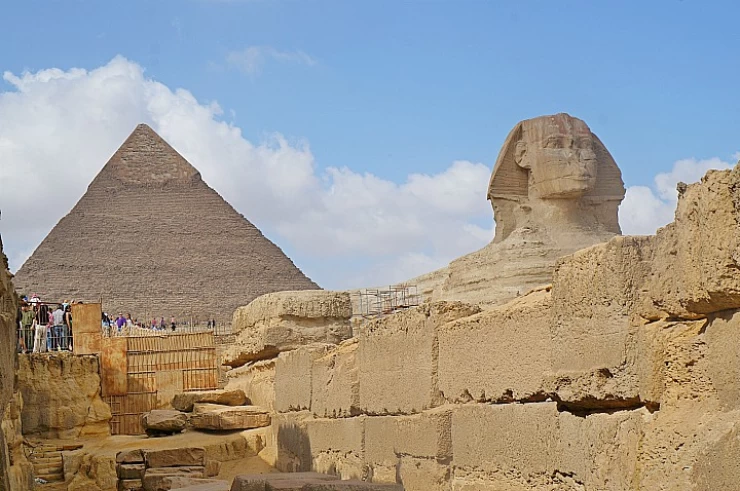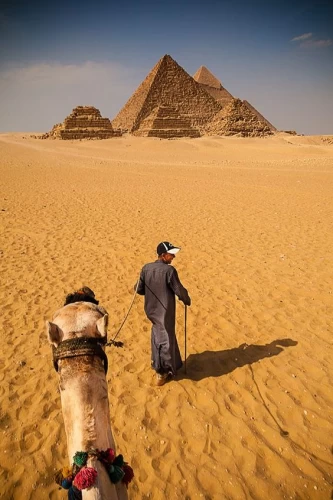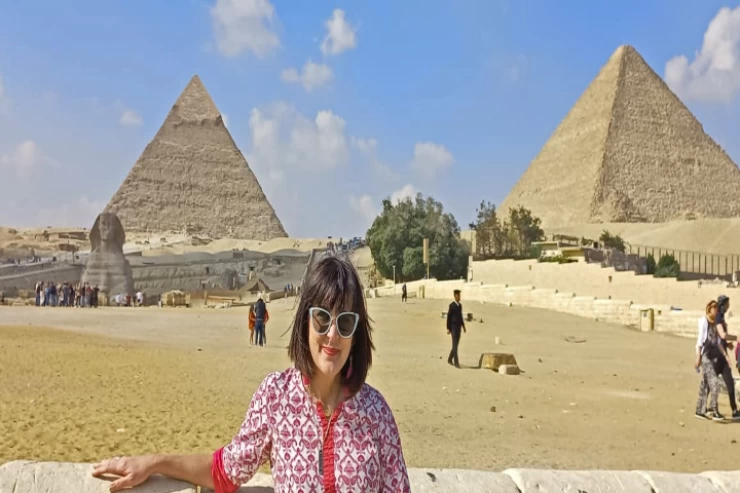
God Serapis | Ancient Egyptian Gods
God Serapis
Serapis was usually depicted as the sun, fertility, and afterlife. His companion was Isis, the wife of Osiris, and one of the most popular deities according to religion in ancient Egypt during the Ptolemaic Period. Serapis was represented as a man with an elaborate Greek hairstyle wearing Greek-style robes and a full beard. He often wears a basket on his head. Sometimes he is depicted as a serpent in honor of his connection with the underworld and fertility.
The cult of Serapis was a huge success for the Ptolemaic dynasty, and various temples were built in Egypt for his worship. The main temple was in the Ptolemaic capital, Alexandria. According to the geographer Strabo, the Serapeum in Alexandria stood in the west of the city. Although it was an important site throughout the Mediterranean.
Ancient Egyptian Gods
The Gods of ancient Egypt were very much like humans they loved and hated, they felt jealous and fought, they took revenge, killed, and also died during an amazing myth full of joyful, action, and dramatic events that inspired modern movie directors and producers to create world-famous movies about the grandeur of the Pharaohs and the Gods they worshipped.
Our team will help you travel to Egypt and experience the sunny weather of our beautiful country during Easter 2024, thanks to their extensive knowledge of Egyptian tourism. You can customize your package by selecting one of our Egypt tour packages or make the most of your time on a short visit, learning more about Egyptian history and its fascinating stories and experiencing it through private tours in Cairo. Join one of our budget tours to Egypt through the Sahara Desert, such as Siwa tours from Cairo, for example, or preferably tours to Egypt's White Desert. Discover our day tours to Aswan, take a day trip from Aswan to Abu Simbel, or travel overland and enjoy our day tours to Luxor to see the incredible temples of Karnak, the Temple of Luxor, the Temple of Hatshepsut, and see the beautifully painted tombs in the Valley of the Kings, this is the place where the kings and rulers of the new kingdom rest in peace and learn their mummification and burial rituals.
Serapis was usually depicted as the sun, fertility, and afterlife. His companion was Isis, the wife of Osiris, and one of the most popular deities according to religion in ancient Egypt during the Ptolemaic Period. Serapis was represented as a man with an elaborate Greek hairstyle wearing Greek-style robes and a full beard. He often wears a basket on his head. Sometimes he is depicted as a serpent in honor of his connection with the underworld and fertility.
The cult of Serapis was a huge success for the Ptolemaic dynasty, and various temples were built in Egypt for his worship. The main temple was in the Ptolemaic capital, Alexandria. According to the geographer Strabo, the Serapeum in Alexandria stood in the west of the city. Although it was an important site throughout the Mediterranean.
The marble head of the god Serapis was created. It was found in 1999 while excavating at the sea's bottom in Abu Qir, Alexandria. His temple in Alexandria, the Serapeum, was considered one of the most important temples, and Serapis was worshipped as the god of healing and the afterlife.
The god Serapis is depicted with curly hair and a thick beard. On the top of his head is a hole for the calathos, decorated with plants in relief, which Serapis was often depicted with and which was found far from the head on the seabed east of the city of Canopus.
The story began at the walls of the ancient city, where a muscular young man sent his men to the city of Pontus to bring a new god to Alexandria, the god "Serapis". This was what Ptolemy I (Soter) dreamed of, to include the worship of the god Serapis within the Alexandrian trinity in order to consolidate the rule of the Ptolemies in Egypt.
There are other opinions that this idol was a gift from the city of Sinope during the reign of Ptolemy II (Philadelphus) in response to Egypt's gift of wheat to that city.
Some historians believe that the idea started during the reign of Alexander the Great, when he saw Serapis in a dream and ordered the construction of a temple for him.
The Egyptians had been worshipping the same gods for thousands of years, and Ptolemy I knew they were unlikely to accept a new deity. So he took aspects of two of the most popular gods—Osiris and Apis—and mixed them with the Greek king of the gods, Zeus, building on the already established Egyptian cult of Osirapis, to create Serapis. The historian Plutarch (c. 45/46–120/125 CE)
The seven-pointed star was a symbol of the Egyptian god Serapis. This bust, possibly found in Egypt, shows a man wearing a diadem adorned with a seven-pointed star. Traces of paint are visible: Red on the hair and beard, and pale blue on the eyes. The wreath was once gold-plated, but little is left of it now.
A golden wreath depicting Serapis in front of a temple facade, found inside a pottery vessel in the village of Dosh in the Kharga Oasis. The artifact dates back to the Roman era and is housed in the National Museum of Egyptian Civilization, the first of its kind in Egypt and the Arab world. Serapis is the ancient Egyptian god of healing.


















